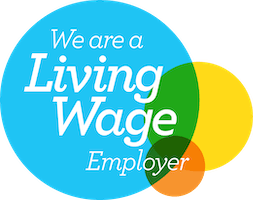How I opened up about my anxiety at work
Ryan Lakhan-Bunbury
As a man from an Indo-Caribbean background, I’ve been raised to confront major challenges by myself and conditioned to not show “weakness”. Couple this with the male dominated bravado culture in the corporate organisations I’ve worked in for the past 19 years, opening up about anxiety can be somewhat difficult.
In fact, it took me a while to truly understand what terms like agoraphobia and panic disorder meant, let alone be able to articulate it.
It’s therefore no surprise that explaining to your manager that you can’t walk across bridges, drive on the motorway, or take the lift to the 9th floor without panicking may be met with confusion.
In 2013, I finally plucked up the courage to share my fear of driving on motorways with my then manager to discuss alternate work arrangements, given that I had to travel to see clients.
According to him, it was illogical to have this fear. If I was comfortable riding the tube, then being in a car should feel safer.
Anyone who understands agoraphobia will know that it is not overcome by logic. The fight or flight response is automatic, based on previous experiences or traumas. Needless to say, I closed up and never raised the issue with him again.
Fast forward to May 2019, my 3-week honeymoon to Japan resulted in me unexpectedly confronting many situations I’d avoided for years, triggering panic attacks. Previously, I had only experienced panic attacks in specific situations, but the intensity of what I experienced in Japan, resulted in me developing acute anxiety. This meant having constant panic attacks with symptoms that included insomnia, depersonalisation, constant heart racing, and more.
Back in the UK, I felt I had no choice but to open up to my manager. On my first day back into the office we met in a quiet room where I burst into tears and just let it all out.
I was grateful that this time, I had a manager who empathetically listened, ensured I had the necessary time off work to recover, organised a phased return to work, and took the time to understand panic disorder and agoraphobia.
Subsequently, I accessed the standard 6 counselling sessions available to me through my employee assistance programme. Thereafter I undertook counselling privately as NHS waiting lists for counselling were over 8 months. I also worked with an agoraphobia specialist who introduced me to CBT and graduated exposure techniques.
I was able to adapt my working hours to accommodate my almost daily exposure outings and sleep pattern.
I’m pleased to say that I can now walk/drive across bridges, drive most places and take the lift to the 9th floor and my journey continues.
I now show up to work as my authentic self and facilitate open discussions with colleagues about anxiety. In turn, this has led to them feeling comfortable to share their own experiences and has played a role in normalising conversations that were once seen as stigmatic.
‘Ryan is an experienced leadership coach for a FTSE 100 company who is passionate about sharing his experience of panic disorder and agoraphobia to help others. He has run sessions on mindfulness and anxiety at work and is a wellbeing ambassador. He is currently finalising his coaching accreditation with the International Coaching Federation and is in the process of starting counselling/psychology qualifications. He enjoys yoga, learning languages like Spanish and dancing to 1930’s Jazz or Swing Music.’
The views expressed by the contributor are not necessarily those of Anxiety UK, nor can we guarantee the accuracy of the information provided. If you would like to write a blog for AUK please email [email protected] for more information.









